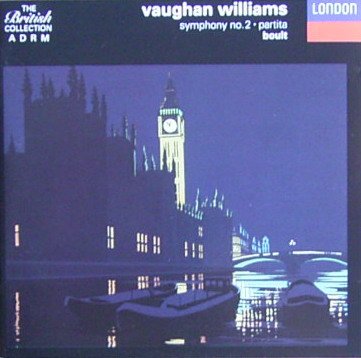Musical Evocations at the Kennedy Center
Many thanks to Robert R. Reilly for this review from The Kennedy Center.
This Thursday night, French influence was everywhere with the National Symphony Orchestra under British guest conductor Matthew Halls at the Kennedy Center. First there was Maurice Ravel’s Le Tombeau de Couperin, a recollection of 18th-century French music through the gauze of Impressionism, next, Henri Dutilleux’s Tout un monde lointain, a musical impression of Charles Baudelaire’s Les fleurs de mal, and, lastly, Ralph Vaughan Williams’s A London Symphony, with wonderfully colored orchestration influenced by Vaughan Williams’s studies with Ravel.
The first movement of the Ravel sounded slightly homogenized, not as transparent or diaphanous as it should have been, and wanting in subtlety. Things improved in the second movement with the delicate tracery of the winds standing out, though foursquare rhythms. The third movement had everything together, rhythmic flexibility and finely shaded playing, especially from the oboist. With a sparkling last movement, Halls and the NSO captured the heart of this meltingly lovely music.
  R.Vaughan-Williams, A London Symphony, Sir Adrian Boult / LPO Decca      Dutilleux & Lutosławski , Cello Concertos, M.Rostropovich / S.Baudo / O.de Paris EMI     |
I finally became a fan of Vaughan Williams the symphonist (I have always loved the Tallis Fantasia, The Serenade to Music, and The Lark Ascending) last August at the Proms in London, where I got to hear the Fourth, Fifth and Sixth Symphonies played together in one evening. I am afraid that the Second Symphony by itself, as beloved as it is, would never have gotten me there. I would say of it, as Samuel Johnson did of Milton’s Paradise Lost, that “none ever wished it longer than it is”. But then, of course, I realized that it actually was longer than it is, and that Vaughan Williams trimmed some 20 minutes from the original version. At least he realized it needed tightening.
Because I love London, I have tried, and failed, to love this Symphony. This performance did not change my mind. (When it needs changing, I return to the 1965 recording by Sir Adrian Boult and the London Philharmonic Orchestra.) First let me say that Halls and the NSO caught the hale and hearty aspects of the music. They did bring the great city roaring to life but, in a way, they woke it up too soon. There was magic missing. This performance did not quite achieve the hushed quality it needed in the necessary places – including at the very beginning. I am afraid that I have gotten used to the superb pianissimos that Christoph Eschenbach can coax out of the NSO, and I missed them here. As for balance, in the second movement, as beautiful as the oboe was, shouldn’t it have been played more softly, more cushioned in the orchestra, rather than standing out so boldly from it? Yes, the closing chords of the third movement were played with a lovely softness, as was the end of the Symphony, but there was not enough of this to capture the full range of expression that this Symphony needs to befully successful. So this performance of the Second did not quite get me there – yet. Until then, I will return to Vaughan Williams’s middle symphonies.
Perhaps alarmed by the severe storm warnings, the audience was light on Thursday evening. When the seats fill out for the subsequent performances on June 14 and 15, the very good playing I heard will only be getting better.
A presentation was made after intermission to honor the NSO’s principal harpist, Dotian Levalier, who is retiring after 44 years of laudable service. All three compositions in the concert prominently featured the harp and, in her marvelous playing this evening, Levalier showed what the NSO will be missing.























































No comments:
Post a Comment